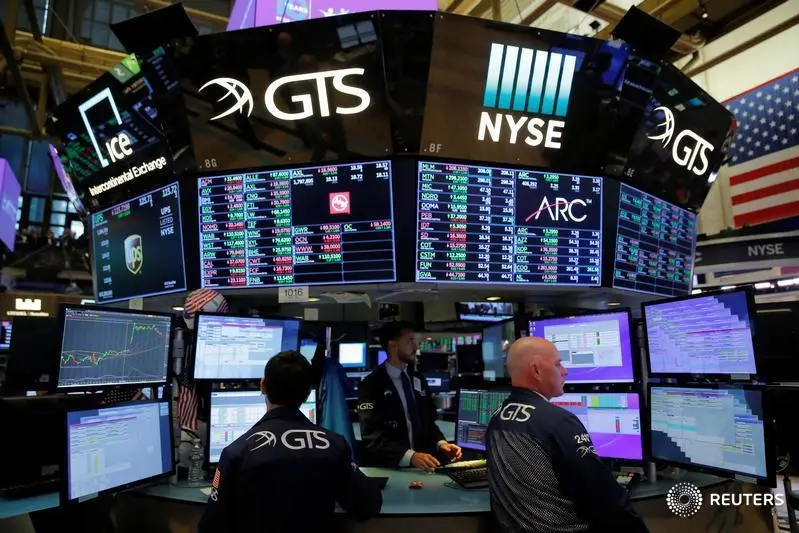PHOTO
- Global markets add gains
- Saudi Arabia’s index drops 0.6 percent
- Oil prices gain on tightening supply
- Dollar rises, gold prices retreat
Global markets
Stock markets around the globe mostly surged to their highest levels in over a week on Friday as expectations grew that the United States and China would open new trade talks, but a tweet from the U.S. President limited gains and tempered market expectations.
Chinese officials welcomed an invitation from U.S. Treasury Secretary Steven Mnuchin to new trade talks.
U.S. President Donald Trump tweeted on Thursday that Washington was “under no pressure to make a deal with China”
The MSCI All-Country World index, which tracks shares in 47 countries, rose 0.12 percent and touched its highest level since September 4.
On Friday on Wall Street, the Dow Jones Industrial Average rose 10.01 points, or 0.04 percent, to 26,156, the S&P 500 gained 0.41 points, or 0.01 percent, to 2,904.59 and the Nasdaq Composite added 16.67 points, or 0.21 percent, to 8,030.38.
The pan-European 600 index gained 0.28 percent.
“While the potential for a trade deal in the near-term remains low, a resumption of dialogue could lift sentiment and support markets,” analysts at Credit Suisse wrote in a note to clients, according to a Reuters report.
Middle East markets
United Arab Emirates stock markets were closed for a public holiday on Thursday.
Saudi Arabia’s index lost 0.6 percent despite a 1.1 percent rebound in the MSCI emerging market index. The Saudi index has still added 5 percent since the start of 2018 and has outperformed the emerging market index.
Saudi Basic Industries fell 1.2 percent, while Sahara Petrochemical lost 1.1 percent. Insurer MedGulf sank 7.4 percent after surging on the two previous days because shareholders were entitled to a discounted rights issue, as of end-Wednesday.
Qatar’s index added 0.3 percent in low volumes. Mesaieed Petrochemical gained 1.3 percent.
Egypt’s index dropped 1.2 percent, mainly dragged down by a weakness in real estate stocks.
Kuwait’s index added 0.4 percent, Bahrain’s index gained 0.3 percent and Oman’s index rose 0.6 percent.
Oil prices
Oil prices rose on Friday, as the American Petroleum Institute (API) said earlier last week that U.S. crude stocks fell by 8.6 million barrels in the week to September 7 to 395.9 million barrels.
The market also was pricing in new U.S. sanctions on Iran starting November, which also pushed prices higher.
U.S. crude rose 0.82 percent to $69.15 per barrel and Brent was last at $78.34, up 0.2 percent on the day.
Currencies
The dollar index, which measures the greenback against a basket of six major currencies, gained 0.41 percent.
The months-long trade tension between the U.S. and China has been positive for the U.S. dollar, due to the belief that the United States has less to lose from the dispute.
Precious metals
Gold prices retreated on Friday on a stronger dollar.
Spot gold lost 0.5 percent at $1,195.21 per ounce by 1735 GMT, having hit its highest since August 28 at $1,212.65 on Thursday. It had risen by more than 0.1 percent last week and was on track for its first weekly gain in three.
U.S. gold futures for December delivery settled down $7.10, or 0.6 percent, at $1,201.10 per ounce.
(Writing by Gerard Aoun; Editing by Michael Fahy)
(gerard.aoun@thomsonreuters.com)
Gain a deeper understanding of financial markets through Thomson Reuters Eikon.
Our Standards: The Thomson Reuters Trust Principles
Disclaimer: This article is provided for informational purposes only. The content does not provide tax, legal or investment advice or opinion regarding the suitability, value or profitability of any particular security, portfolio or investment strategy. Read our full disclaimer policy here.
© ZAWYA 2018





















